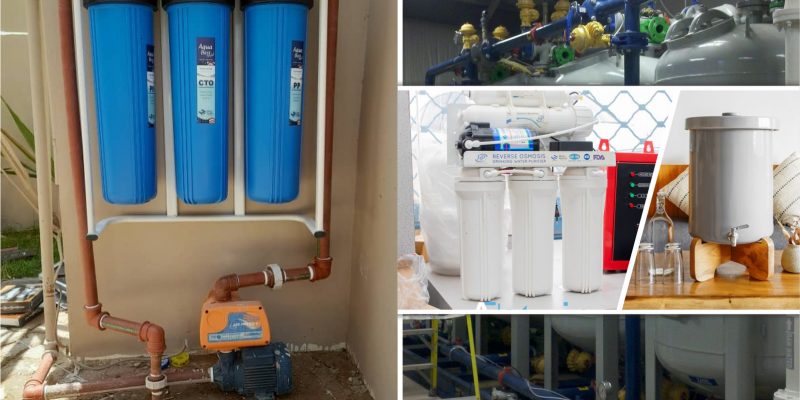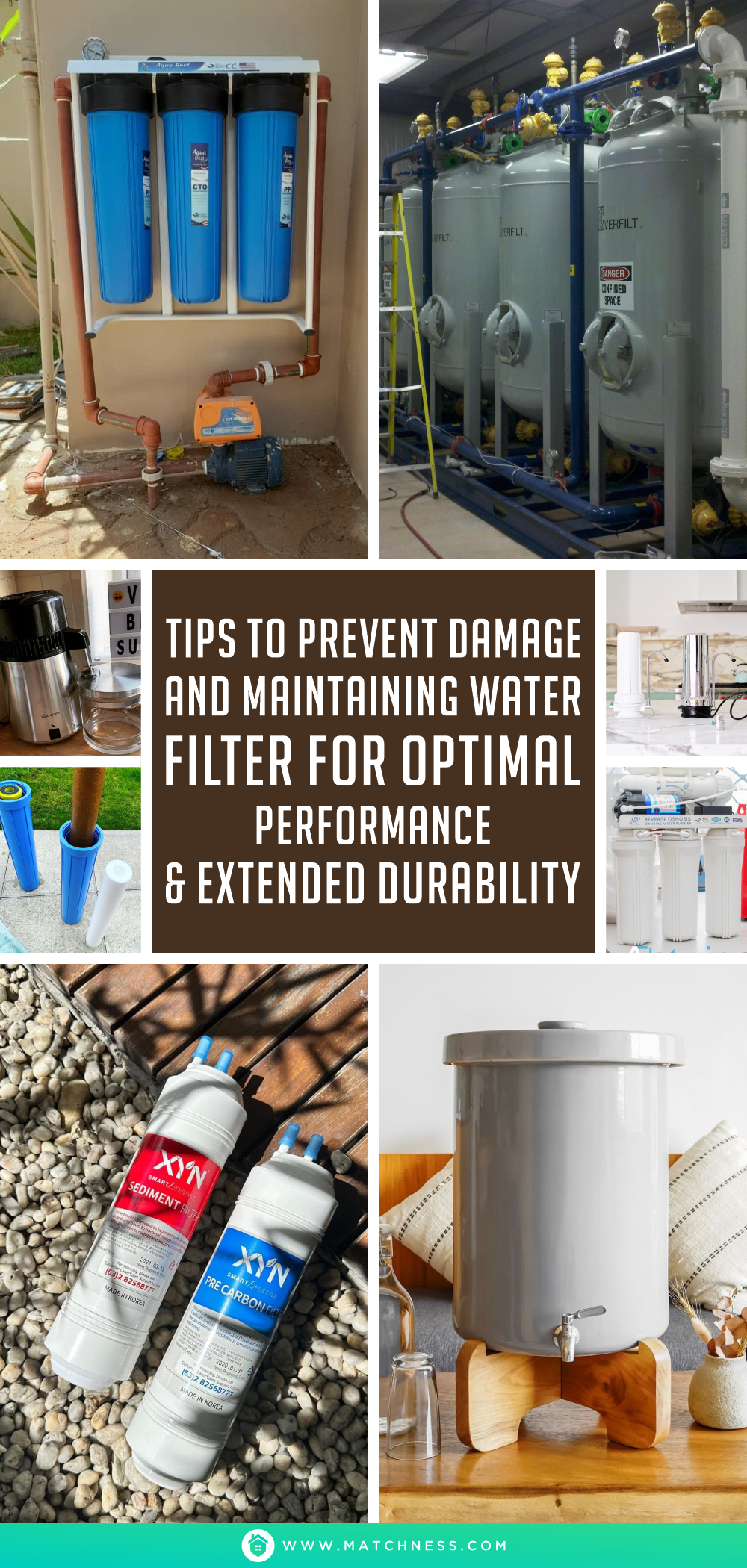Water filters are used to purify water by removing impurities, contaminants, and harmful substances, making it safe for consumption. There are various types of water filters, such as activated carbon filters, reverse osmosis filters, and ceramic filters, each with different capabilities and uses. The choice of a water filter depends on the specific needs and quality of the water being purified. Common reasons for using water filters include improving taste, removing chlorine, reducing lead and other heavy metal exposure, and removing harmful microorganisms. Here are 7 most common types of water filter for home and explain the preventive maintenance procedures that guarantee optimal performance and an extended lifespan.
Activated Carbon Filters:
Activated Carbon Filters are water filtration systems that use activated carbon to remove impurities and contaminants from water. One advantage of using activated carbon filters is that they are effective at removing a wide range of contaminants, making them a versatile option for improving water quality. They are also relatively low maintenance, as the activated carbon can be easily replaced when it becomes saturated with impurities.
Here are some tips for preventing and maintaining an activated carbon water filter:
- The frequency of filter changes depends on the water quality and usage, but it is recommended to change the filter at least once every 6-12 months.
- Before first use, and after filter changes, flush the filter with water to remove any loose carbon dust and to improve the filtration efficiency.
- Store the filter in a clean, dry place, away from extreme temperature and moisture to prevent damage to the filter and prolong its lifespan.
- Ensure that the water pressure is within the manufacturer’s recommended range, as high or low water pressure can damage the filter and reduce its efficiency.
- Avoid using hot water
- For better filtration results, consider using a pre-filter to remove larger particles and extend the life of the activated carbon filter.
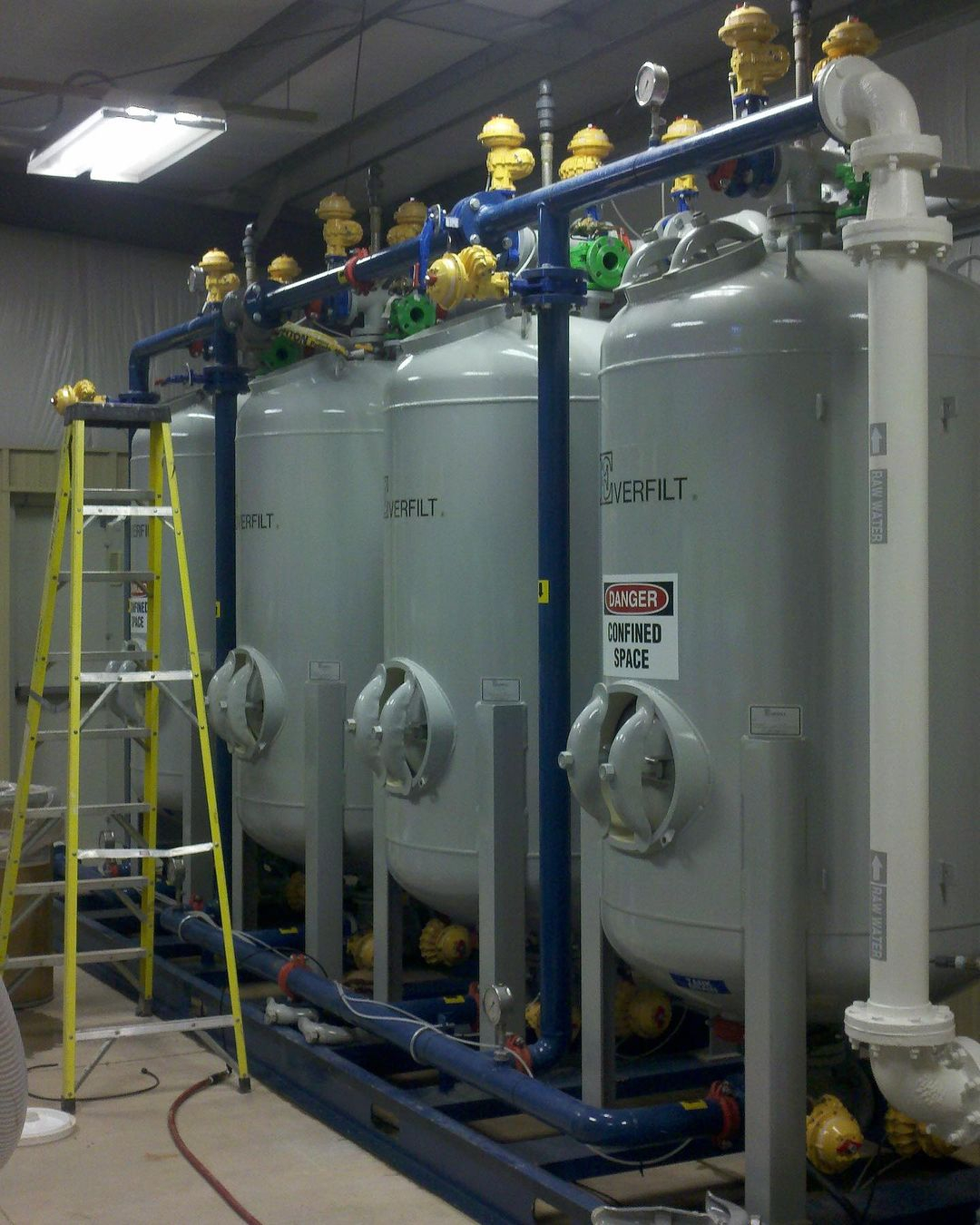
Activated carbon filters are generally used in the process of removing organic compounds and/or extracting free chlorine from water. This type of filter also makes it a versatile choice for improving water quality. Carbon Filter from @everfilt_co
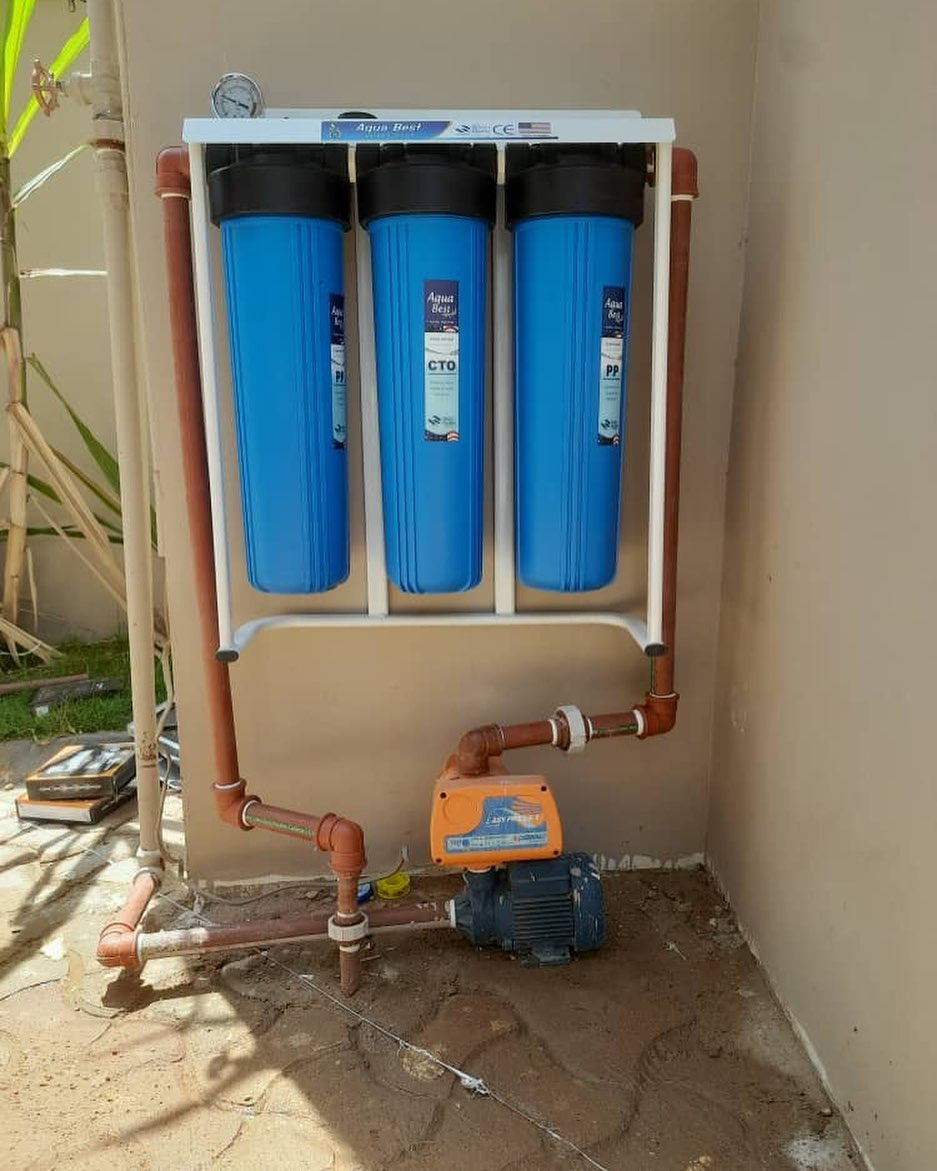
Filters with activated carbon are a proven option for removing certain chemicals, especially organic chemicals, from water. GAC filters can also be used to remove chemicals that give water an unpleasant odor or taste such as hydrogen sulfide or chlorine. Activated Water Filter from @precious_storetz
Reverse Osmosis Filters:
Reverse Osmosis (RO) Filters are a water filtration system that use a semi-permeable membrane to remove impurities and contaminants from water. RO filters are often used in residential water filtration systems, as well as in commercial and industrial applications. They are particularly effective at removing salt and minerals from water, making them a popular choice for people who live in areas with hard water. The disadvantage of RO filters is that they can remove a minerals from water, such as calcium and magnesium, in addition to impurities. This can result in water that is purer, but less balanced and less beneficial for human consumption.
Here are some tips for preventing and maintaining RO water filter:
- Change the filters regularly at least once every 12-24 months
- Flush the system regularly to remove any accumulated contaminants and maintain the efficiency of the RO membrane.
- Monitor the water pressure
- Store the system properly to prevent damage to the system and prolong its lifespan
- Clean the system regularly and regularly test the water quality to ensure that the RO system is effectively removing impurities and producing high-quality water.
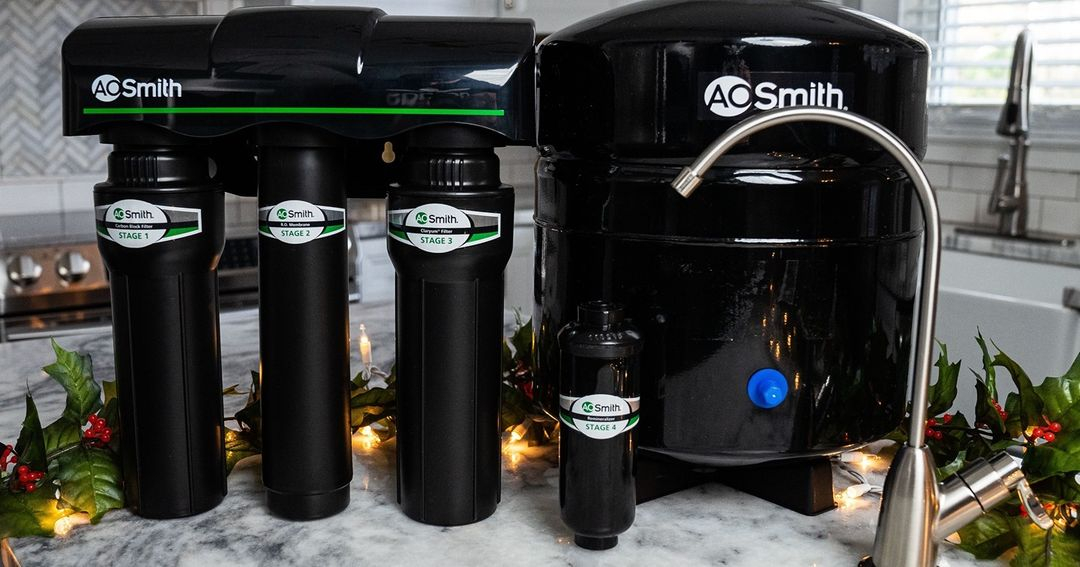
Opting for this type of filter is highly effective at removing salt and minerals from water, making it a popular choice for people who live in areas with hard water. This can produce water that is purer, but less balanced and less usable for human consumption. Reverse Osmosis Filters from @aosmithatlowes
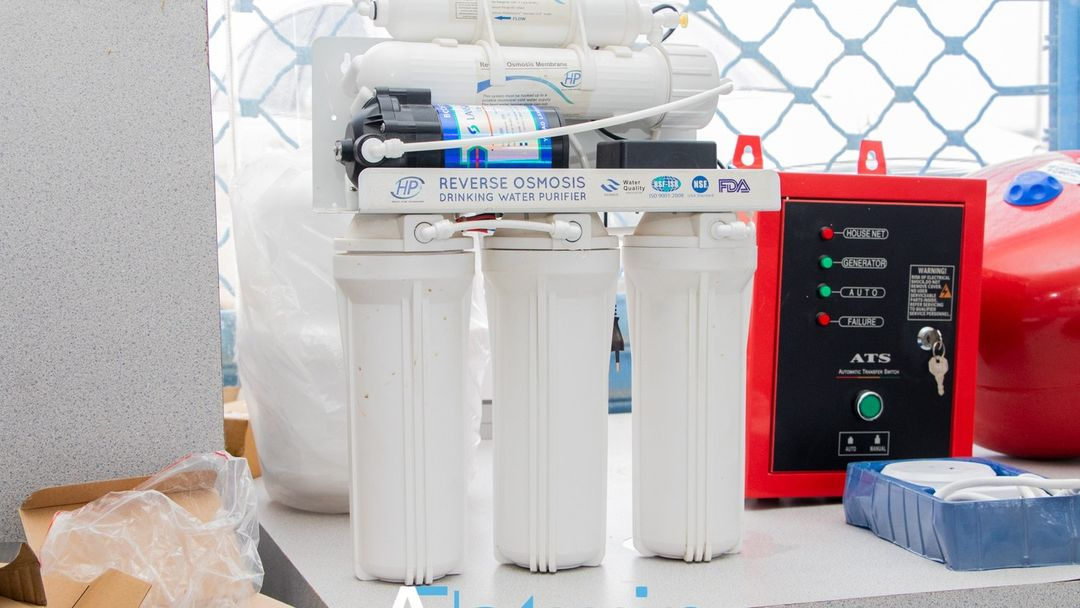
HYDRO RO (Reverse Osmosis) water machine is today’s modern water machine technology that can help everyone to get water that is suitable for drinking. Apart from filtering clean water, the RO HYDRO machine is also a water filter for treating water sourced from seas, rivers, fresh water, etc. for household needs and drinking water. Osmosis Filters from @atwinengineering
Ceramic Filters:
Ceramic filter is made of a porous ceramic material that removes particles, bacteria, and other contaminants from the water as it passes through the filter. This type of water filter is often used in developing countries where access to clean drinking water is limited, as well as in outdoor and emergency situations where clean water is needed.
Here are some tips for preventing and maintaining a ceramic water filter:
- Clean the ceramic filter element regularly, as recommended by the manufacturer
- Store the filter in a clean, dry place, away from extreme temperature and moisture
- Avoid using with hot water
- Replace the filter regularly and pre-filter the water
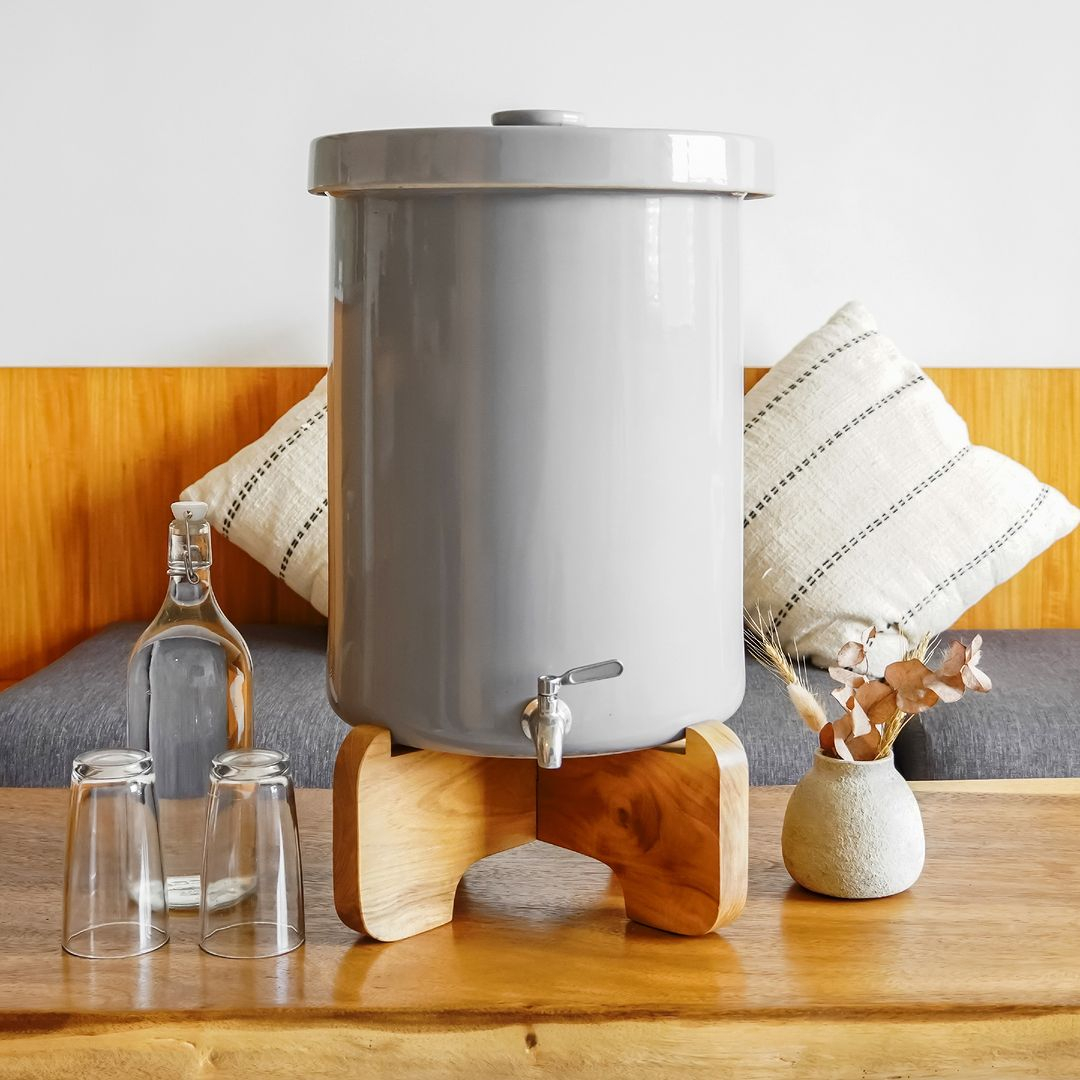
Using this ceramic filter will help you to remove particles and bacteria. Using a ceramic filter used to filter water makes it easier for you to get perfect water results. Ceramic Water Filter from @terrawaterindonesia
Ultraviolet (UV) Filters:
An ultraviolet (UV) water filter is a type of water filtration system that uses UV light to purify water. The system works by exposing the water to a UV lamp, which emits UV radiation that kills or inactivates harmful microorganisms, such as bacteria, viruses, and parasites. This makes the water safe to drink. UV water filters are often used in conjunction with other filtration methods, such as activated carbon or reverse osmosis, to provide a multi-stage filtration process that removes a wider range of contaminants. UV water filters are commonly used in homes, businesses, and public water treatment facilities.
Here are some tips for preventing and maintaining a UV water filter:
- Replace the UV lamp at least once every 12 months to ensure that the UV filter is effectively killing bacteria and other pathogens
- Clean the quartz sleeve regularly to remove any accumulated debris and maintain the efficiency of the UV filter
- Monitor the water flow rate within the manufacturer’s recommended range
- Avoid using hot water and for better filtration result, consider using a pre-filter
Distillation Filters:
Distillation is a water filtration process that involves heating water to its boiling point, then capturing and condensing the steam that is produced. The steam is then cooled and collected, resulting in purified water that is free of impurities and contaminants. Distillation is an effective way to remove many impurities from water, including minerals, salts, heavy metals, and certain chemicals. However, it may not effectively remove certain contaminants such as volatile organic compounds (VOCs), as these are vaporized along with the water during the distillation process. Distillation water filters are commonly used in homes, laboratories, and in some industrial applications where a high level of water purity is required.
Here are some tips for preventing and maintaining a distillation water filter:
- Clean the still regularly and store the still in a clean, dry place, away from extreme temperature and moisture, to prevent damage to the still and prolong its lifespan
- Avoid using hot water and replace the heating element regularly
- Pre-filter the water and monitor the water level to prevent overheating and damage to the still
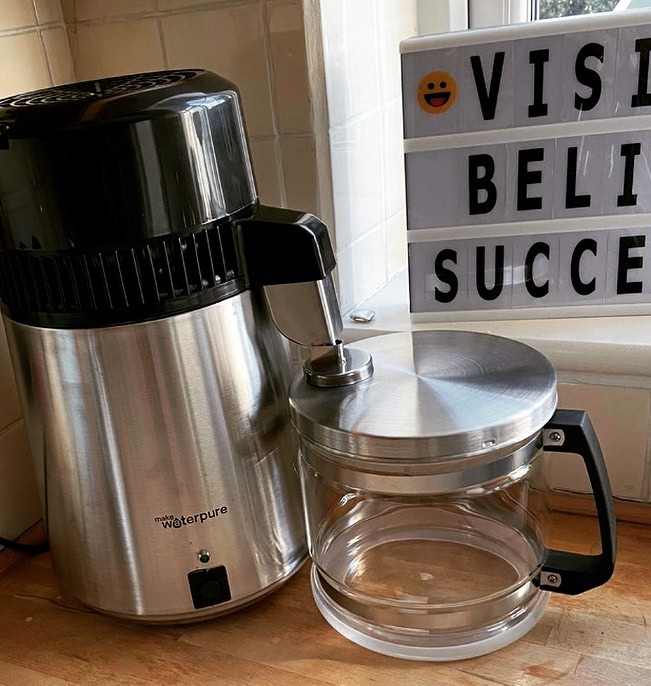
Choosing this distillation filter purifies/cleans tap water. Distillation is an effective way to remove many impurities from water. Using a distillation water filter is usually used at home to filter water to make it clearer and more enjoyable for you to drink. Distillation Water Filter from @melaniejglover
Sediment Filters:
A sediment water filter is a type of water filtration system that removes solid particles, such as sediment, sand, and dirt, from water. Some sediment filters may also include additional filtration stages, such as activated carbon, to remove other impurities from the water. Sediment filters are commonly used in homes, businesses, and in some industrial applications where the water supply may contain high levels of sediment. They are often the first stage of filtration in a multi-stage filtration system, and are used to pre-treat the water before it goes through other types of filters.
Here are some tips for preventing and maintaining a sediment water filter:
- Clean the sediment filter regularly to remove any accumulated contaminants and maintain the efficiency of the filter.
- Store the filter in a clean, dry place, away from extreme temperature and moisture
- Sediment filters are not designed for use with hot water and may not be effective in removing impurities from hot water
- Replace the filter regularly and pre-filter the water
- Handle the sediment filter carefully to avoid cracking or breaking it
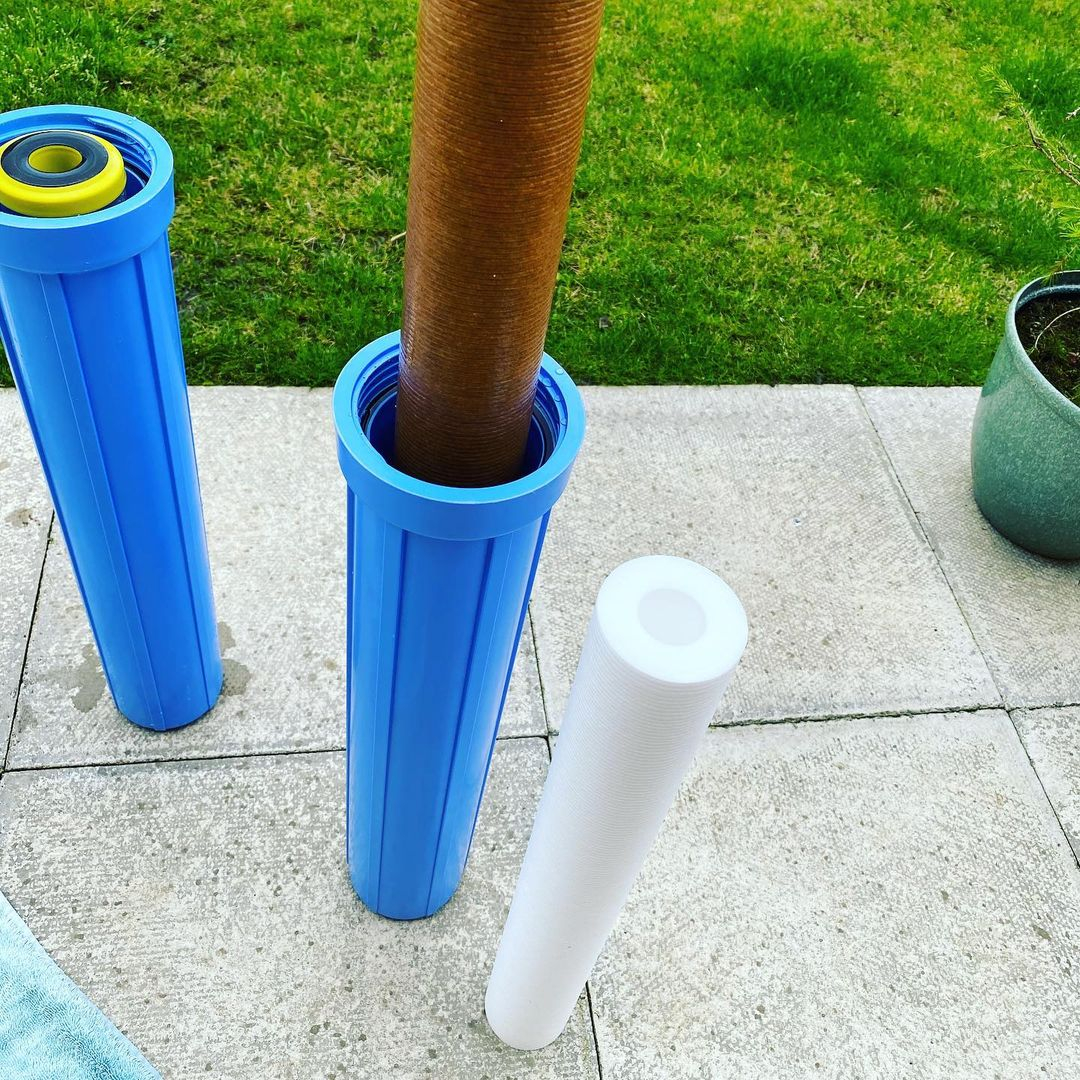
Sediment filters are designed to capture and remove sand, silt, dirt and rust from water. Choosing to use a sediment filter can protect water treatment systems (such as water softeners or UV water sterilizers), as well as equipment that uses water. Sediment Filter from @ady_myers_aqua
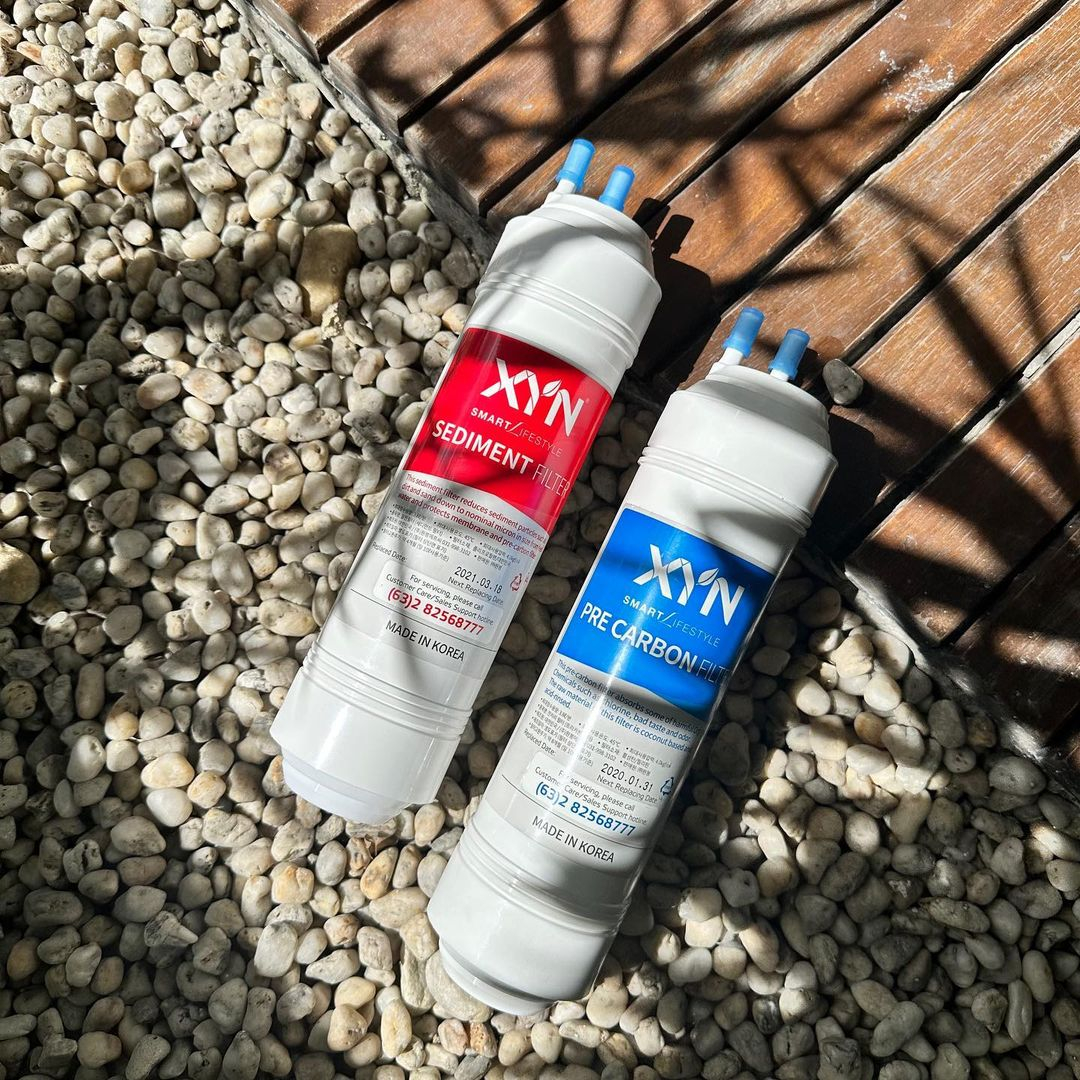
Sediment filters are designed to capture and remove sand, silt, dirt and rust from water. This sediment filter is easy for you to do on your home water. This type of filter is capable of protecting water treatment systems (such as water softeners or UV water sterilizers), as well as equipment that uses water. Sediment Water Filter from @xyn.faxyn
Alkaline Filters:
An alkaline water filter is a type of water filtration system that raises the pH of the water to a more alkaline level, typically between 7 and 9. Alkaline water is water that has a higher pH level than neutral water (pH 7), and is thought to have various health benefits, such as reducing acidity in the body and helping to neutralize free radicals. The alkalization process can be achieved through a variety of methods, such as adding minerals, such as calcium and potassium, to the water, or by using a special filter that ionizes the water to raise the pH. Alkaline water filters are commonly used in homes and businesses, and can be purchased as standalone filters or as part of a larger water filtration system.
Here are some tips for preventing and maintaining an alkaline water filter:
- Replace the alkaline filter at least once every 6-12 months, depending on the water quality and usage
- Store the filter properly to prevent damage to the filter and prolong its lifespan
- Avoid using with hot water
- Pre-filter the water
- Regularly test the water pH level to ensure that it is within the desired range, and adjust the filter settings as needed
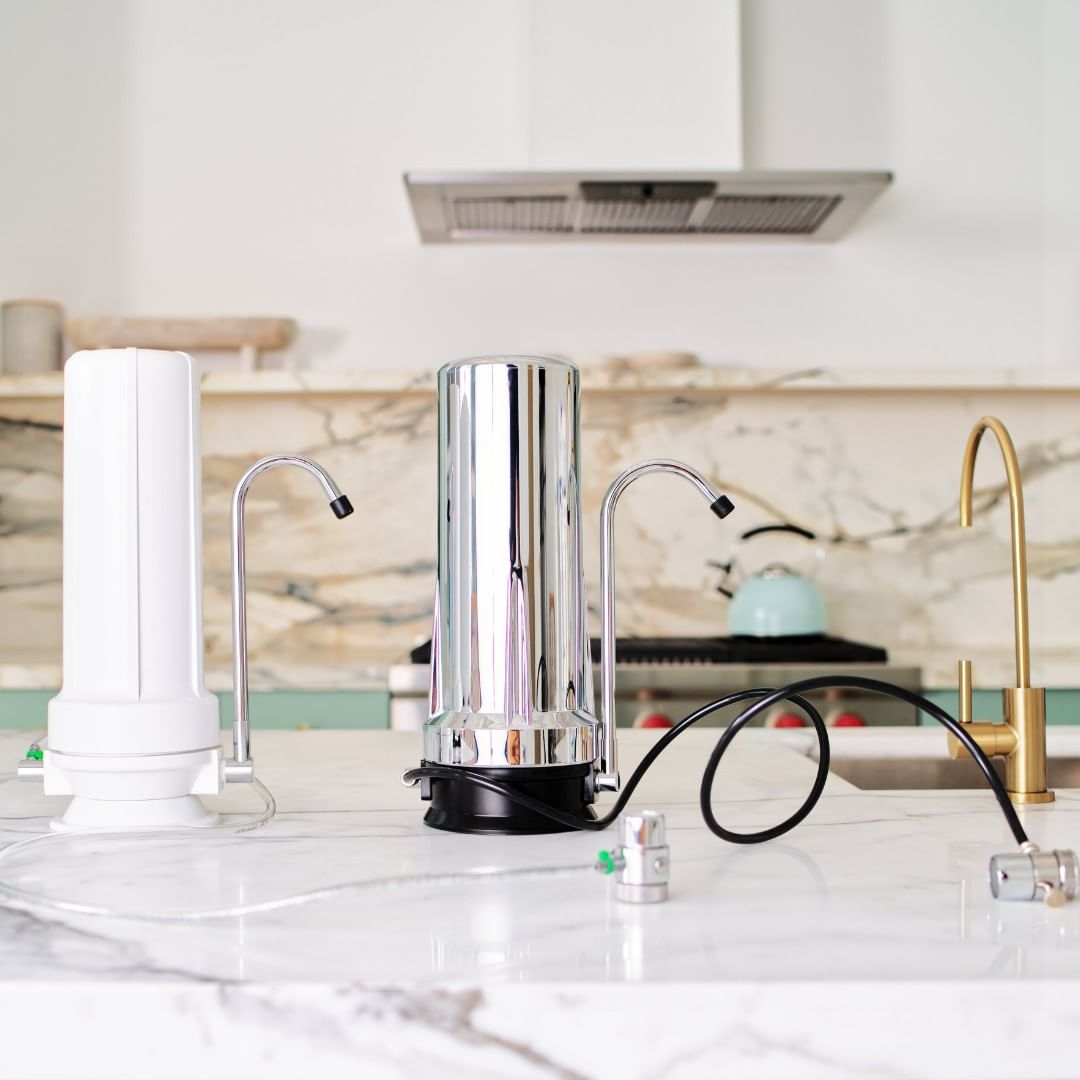
A type of water filtration system that raises the pH of water to a more alkaline level. Consuming alkaline water is said to be able to help overcome various health problems, such as high blood pressure, diabetes, high cholesterol, to cancer. Using this type of filter can make your home water healthier. Alkaline Filters from @freshflowater
By following these tips above, you can help prevent damage and extend the lifespan of your water filter and of course, purify your water.


